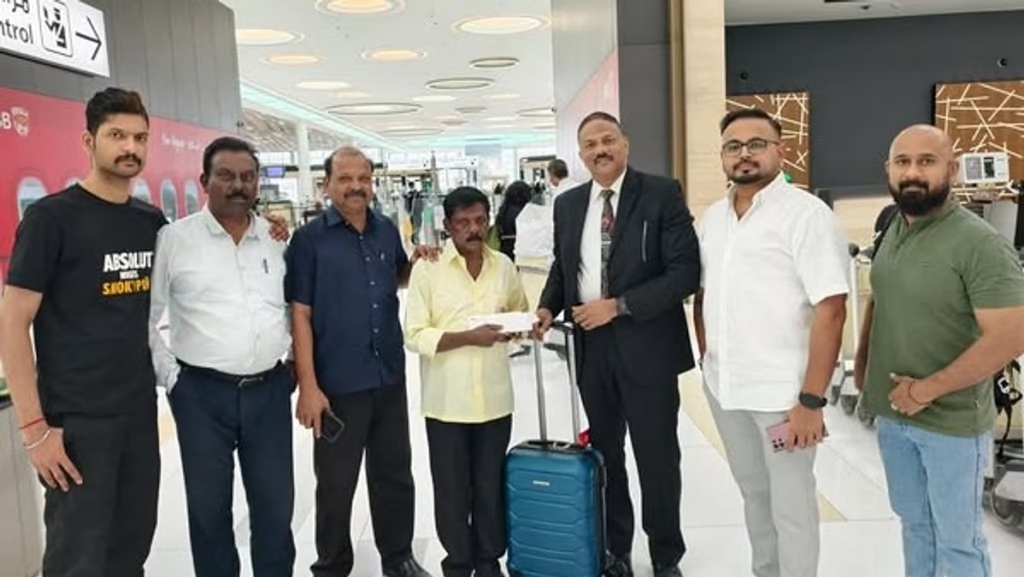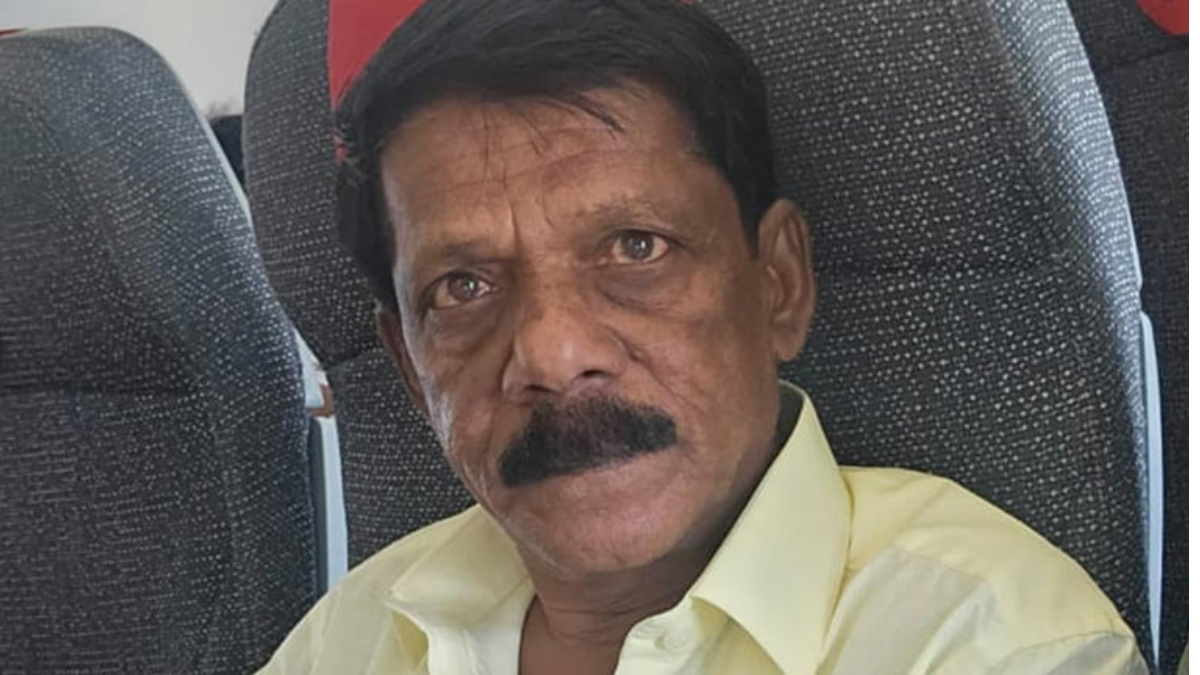A Journey of Hope, Loss, and Unyielding Spirit
In a story that has gripped hearts across the country, 64-year-old Gopalan Chandran’s extraordinary to Kerala Man Returns after 42 long years in Bahrain has become a powerful symbol of endurance, sacrifice, and the human spirit’s unshakable hope. What began as a young man’s pursuit of a better life abroad turned into a decades-long struggle for survival, identity, and ultimately, redemption.
The Beginning of a Dream
Back in 1983, Chandran was a 22-year-old man filled with dreams and ambitions, like many young Indians seeking work in the Gulf. He left his home near Powdikonam in Thiruvananthapuram district, Kerala, in search of a stable livelihood in Bahrain. His goal was simple—earn enough to support his family and secure a future that his modest background couldn’t offer him at home.
He arrived in Manama on August 16, hopeful and determined. He found employment as a mason under a local contractor and started to settle into his new life. But fate had other plans.
When Everything Changed
In 1986, just three years after arriving, tragedy struck. His employer passed away suddenly, and with that, Chandran’s world came crashing down. In the chaos that followed, he lost his passport and all essential documents. With no legal papers to prove his identity or citizenship, he found himself trapped in a foreign country with no way to return home.
From that moment on, Chandran entered a life of hiding. Without documents, he couldn’t apply for another job legally, travel, or even approach authorities for help. He became invisible—one of the countless undocumented workers in the Gulf who live in the margins, unseen and unacknowledged.
Living in Shadows
Over the next four decades, Chandran survived by working odd jobs—mostly painting—and constantly moved from one place to another to avoid being caught. Fear of deportation haunted him, yet the idea of returning home never left his heart. He had no contact with his family, no access to consular services, and no income stable enough to fix his situation.

Imagine living like that for years—without a fixed home, without a phone call to loved ones, without even the ability to say your real name aloud. Chandran’s experience was not just a loss of time but a complete erasure of identity in a system that offered little protection for the most vulnerable.
A Twist of Fate
Chandran’s long-standing ordeal took a dramatic turn in 2020. An altercation with another expatriate led to his arrest by Bahraini authorities. It was the first time in decades that he came under official notice, and while it may have seemed like a misfortune at first, it proved to be a crucial turning point in his story.
His case came to the attention of the Pravasi Legal Cell (PLC), an NGO dedicated to helping Indian migrants in distress abroad. The group—comprising retired judges, legal professionals, and human rights advocates—recognized the urgency of Chandran’s situation and quickly stepped in to help.
Efforts to Bring Him Back
The journey home was not easy. The PLC, led by its Bahrain coordinator Sudheer Thirunilath, collaborated closely with the Indian Embassy in Bahrain and the Kingdom’s Immigration Department. They had to start from scratch to establish Chandran’s identity. With no official records, not even a passport copy, the process was complex and filled with bureaucratic hurdles.
The NGO arranged temporary shelter for Chandran and reached out to his family in Kerala. For his mother, Sanchalakshi, now 95, the news came as a miracle. For years, she had waited for her son, never fully accepting the idea that he was gone forever.
After extensive documentation, consular processing, and multiple legal clearances, the final breakthrough came. On April 23, 2025, Gopalan Chandran boarded a flight to India—empty-handed, but finally homebound.
A Reunion Decades in the Making
When Chandran landed in Thiruvananthapuram, it was not just a physical return—it was emotional, overwhelming, and deeply human. The reunion with his mother was filled with tears, hugs, and silent moments that said more than words ever could. He had missed out on decades of family life—births, deaths, weddings, and everyday joys.
“I have returned empty-handed,” he said quietly. “Even the air ticket was arranged by the embassy. But I got to meet my mother—that’s all I ever wanted.”
A Changed World
Much has changed since 1983. Chandran now finds himself in a Kerala transformed by time and technology. The villages have become towns, phones have become smart, and most of the faces he once knew are no longer around. He admitted that stepping outside alone feels confusing, even frightening.
“The world I left behind is no longer here. If I go out, I will get lost,” he said.
But his family and community are standing beside him. Local well-wishers and government officials have assured support for his rehabilitation. There are efforts to help him secure an ID card, open a bank account, and receive basic social welfare benefits. Local leaders have also discussed offering counseling to help him reintegrate and process the trauma he endured.
A Call for Stronger Migrant Protections
Chandran’s story is a rare tale of return, but it’s also a wake-up call. Thousands of Indian workers live and work in the Gulf, and many face similar challenges, especially those without proper documentation or legal safeguards. Cases like Chandran’s highlight the urgent need for stronger legal frameworks, proactive consular outreach, and NGOs that advocate for vulnerable citizens overseas.
While his story ended with a homecoming, not everyone gets that chance. Chandran’s journey reminds us of the price many pay in pursuit of better opportunities—and how easily they can be forgotten if society does not step up to remember them.
A New Beginning
As Chandran slowly settles into his new life, he does so with the love of his family and the support of kind strangers who refused to let his story end in silence. His experience is not just a tale of hardship—it’s also a celebration of resilience, hope, and the unbreakable bond between a mother and her son.
He may have lost 42 years, but he has returned with something far more powerful than money or possessions—a second chance at life.
Thailand Eyes Middle East Tourists to Offset Chinese Decline



